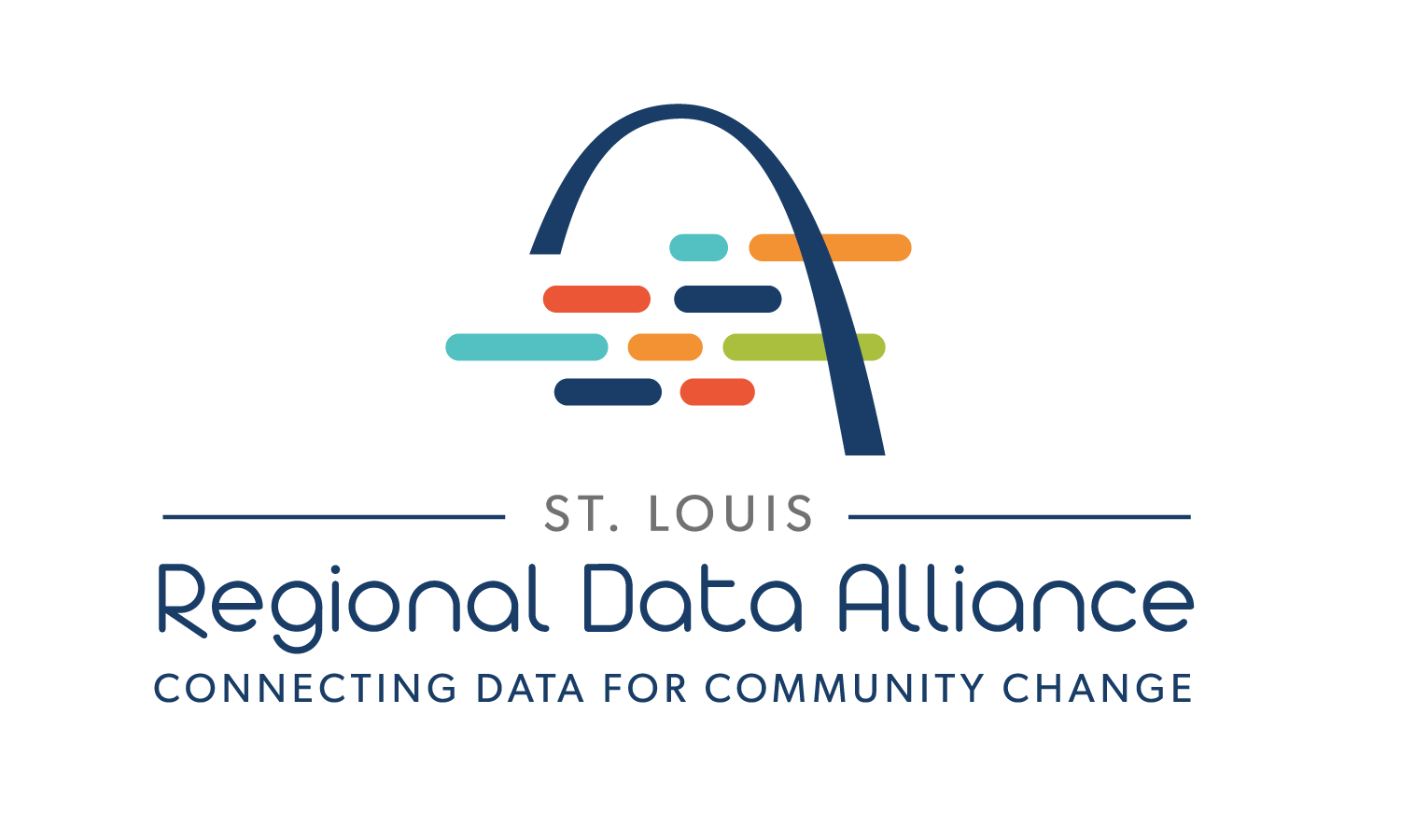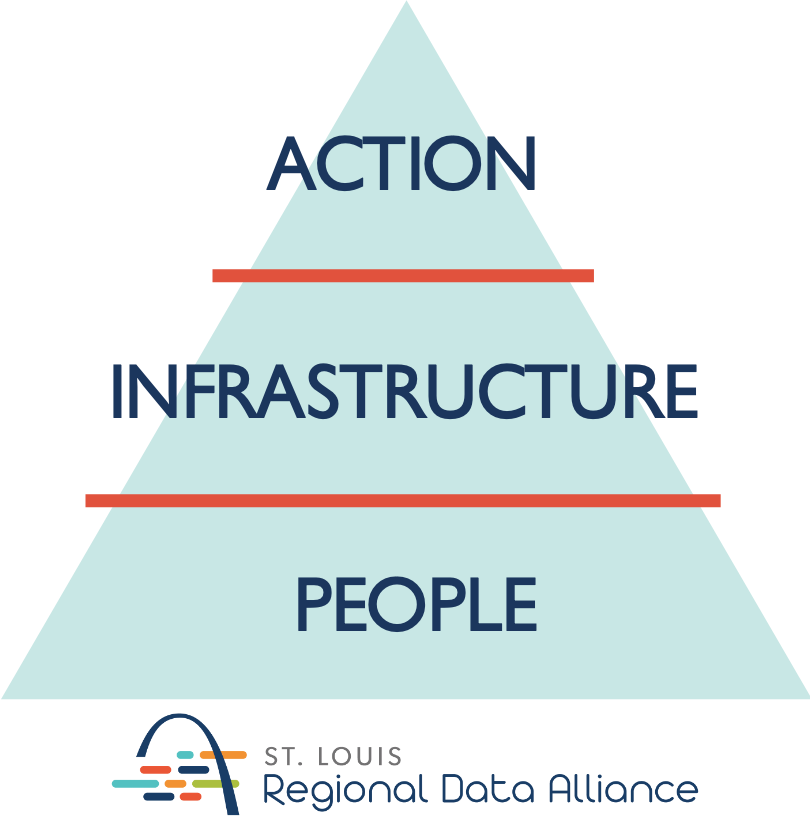About Us
The St. Louis Regional Data Alliance’s mission is to build shared data infrastructure and support strong data actors that use quality data to improve people’s lives.

Our Story
Good information — connected, comprehensive datasets about the St. Louis region’s health and wellbeing — is often hard to find. The complex data landscape requires public, private, and social sector leaders working together to create a holistic regional data sharing system to improve community health.
Since its launch in June 2018, the RDA has worked hard to address these challenges alongside a growing number of partner governments, universities, funders, nonprofits, healthcare providers, private businesses, and strategic initiatives.
Collectively, these organizations sought to understand, connect, strengthen, and use what the RDA refers to as community data, defined as “organized information about community health and development — including but not limited to data from government, healthcare, and the nonprofit sector — that is used to understand a local situation and plan for action.”
A growing recognition by RDA partners that community data must be shared and connected across organizations, geographies, and sectors continues to drive the collaborative approach of the RDA. We invite you to join us any many others across the region as we work to connect the dots.
Our Work
Together, the St. Louis Regional Data Alliance Steering Committee and team developed the following model to organize its goals and efforts: the RDA Pyramid.
Data is About People
People are the foundation of the RDA’s work — including those directly associated with the RDA and the people who community data represent (health, social service, education, etc.).
Sharing Data Requires Shared Infrastructure
Collaborative Data Drives Collective Action
Action — the top of the RDA Pyramid — becomes possible when connected People have access to shared Infrastructure and can use data to improve people’s lives. The RDA has a dual role in facilitating Action: Completing projects that push applied data progress forward like needs assessments (DESE), dashboards (Equity Indicators) and integrated data systems (CIE), and leveraging its network to catalyze collaborative data work in throughout the St. Louis region.

